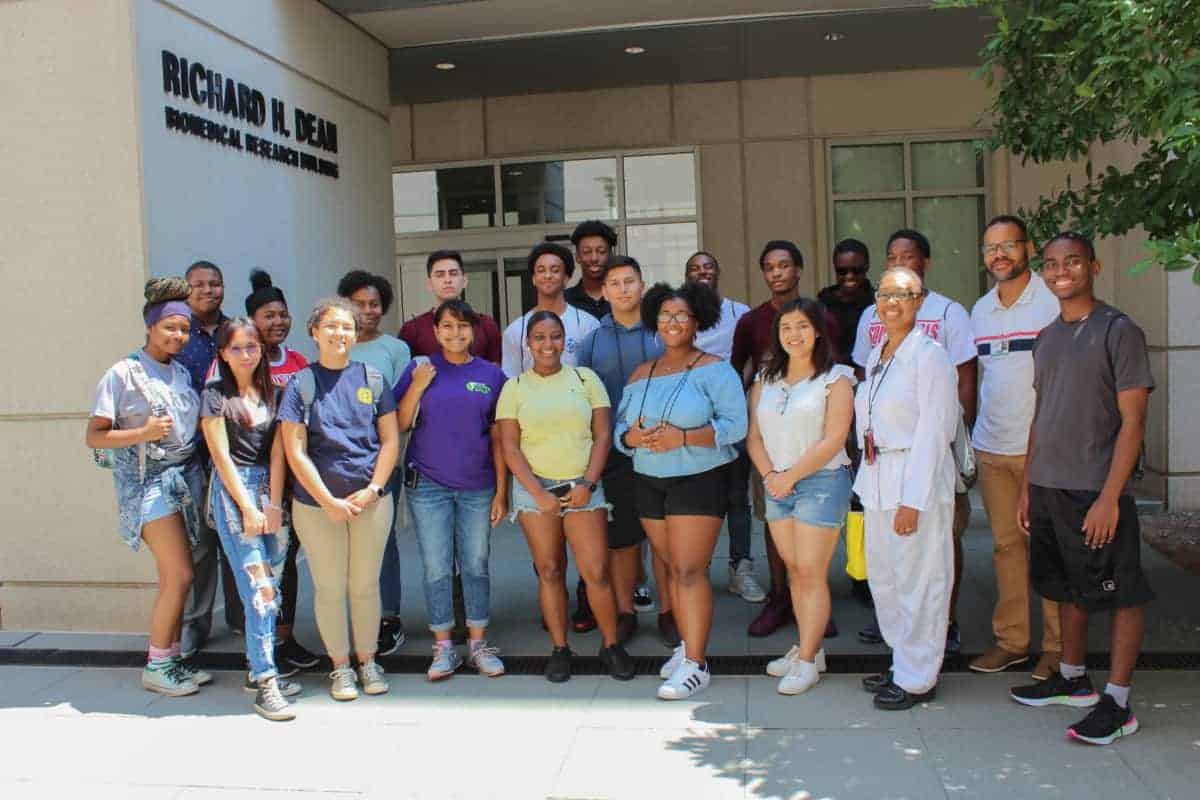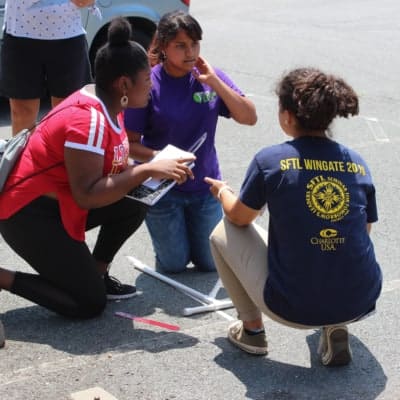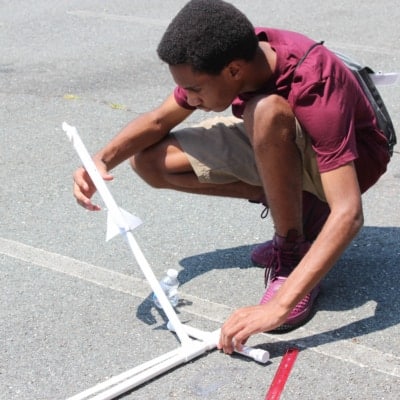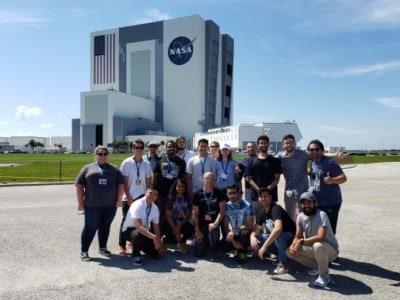It was during a presentation by Kristen Nicholson, a biomechanist and assistant professor at Wake Forest School of Medicine, that Waynon Graham’s face lit up. You could practically hear the lightbulb click on in his mind.
As a rising first-year student at Forsyth Technical Community College (FTCC), Graham planned to study computer science due to his love of video games. Through Nicholson’s presentation, he’d realized the connection between motion capture used in video game creation and biomechanics.
“Out of all the people that gave speeches, this is the one that resonated with me the most,” he said, even following up with Nicholson to discuss career pathways in the field like product development for running shoes or injury prevention for athletes.
“I’ll go the video game route, for sure,” Graham said.
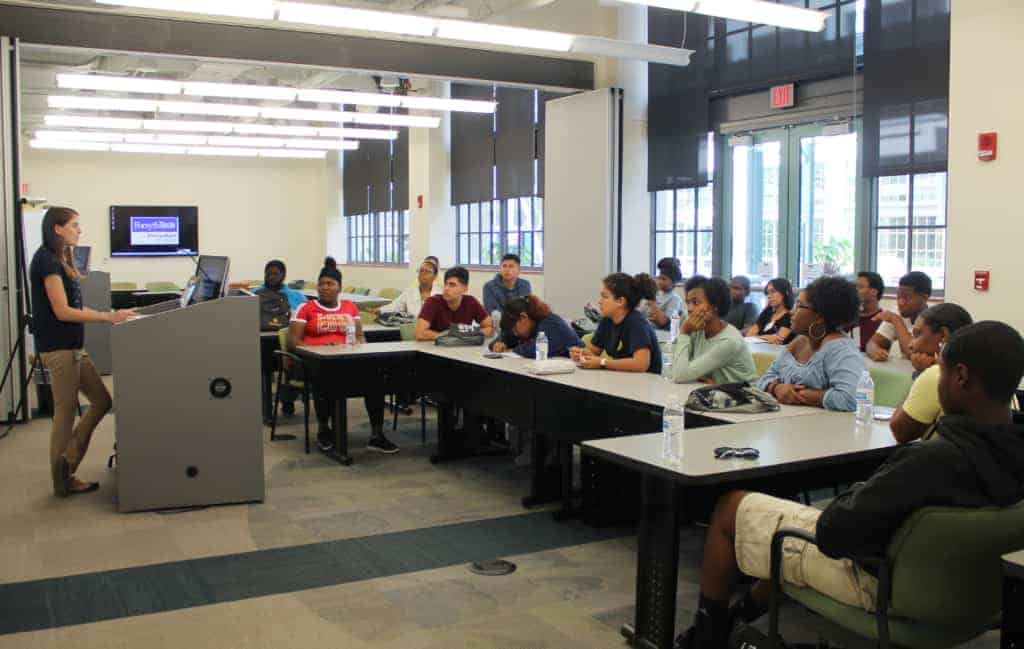

Nicholson’s biomechanics presentation was part of a STEM camp, held Aug. 5 – Aug. 9, led by the FTCC chapter of the NC STEM Alliance with funding from the National Science Foundation. The camp drew in 24 students, primarily 11th and 12th graders from Gaston, Stokes, Surry, and Forsyth counties, who were also of historically underrepresented STEM student populations: African-Americans, Alaskan Natives, American Indians, Hispanic Americans, Native Hawaiians, and Native Pacific Islanders.
“The National Science Foundation and others involved in educational research in the sciences have found that there’s a gap,” said Dr. Tandeka Boko, STEM advisor for the NC STEM Alliance at FTCC. This gap includes underrepresented students’ access, identified interest, and support in STEM education.
“This is a supportive effort to try to increase those numbers in STEM careers through mentoring, hands-on research experiences, and allowing the students to build community among other students like them as well as professionals like them,” Boko said. The NC STEM Alliance effort for underrepresented students is also carried out at Guilford Technical Community College and Central Piedmont Community College, which run their own STEM camps.
The program Boko helped to design at FTCC gave students a variety of academic areas to explore in STEM, from coding to chemistry labs, chromatography, and rocket launches. Students also had the opportunity to hear directly from those working in STEM fields, including in an industry tour at the Wake Forest Institute of Regenerative Medicine (WFIRM), where scientists dream of a time when patients wouldn’t have to wait on a transplant waiting list. Instead, scientists would be able to grow a new organ, like a kidney, made up of a patient’s own cells. Granted, researchers are a long way from accomplishing this dream — but they shared with students how they’re trying.
Students walked through labs where they held organ scaffolds, viewed a “clean room” that scientists had to enter fully suited, and saw a 3D bioprinter and a scanning electron microscope. Students also had the opportunity to ask questions of researchers, like what fields of study lead to work in regenerative medicine. The answer: engineering, material science, chemistry, physiology, computer science, biochemistry, pharmacology, and more.
“Any of that kind of science would feed into here,” said researcher James Poteracki.
For Desiree Moraes, a rising senior at Reagan High School, the WFIRM tour reinforced her interest in the medical field and showed a pathway in regenerative medicine.
“It helps to narrow down your interests,” she said of the camp. “Before I did this, I was kind of interested in coding. I thought it would be cool, and then I actually did it, and I did not like it at all. And instead it just strengthened my interest in regenerative medicine.”
Rising junior Alessandra Sanders of Piedmont Community Charter School agreed.
“The workload and being able to see what goes on in research labs has helped me identify what parts of the STEM fields I’d really like to be a part of,” Sanders said. She now has career goals in biotechnology after exploring the field at camp. This exposure is exactly what Boko had hoped for.
“They had opportunities to not only explore a foundation of academic topics to build on, but they also got a chance to build relationships with two-year and four-year college faculty, staff, and administrators,” she said.
As a black woman in medicine, Boko personally knows the importance of minority students having confidence and building relationships in STEM.
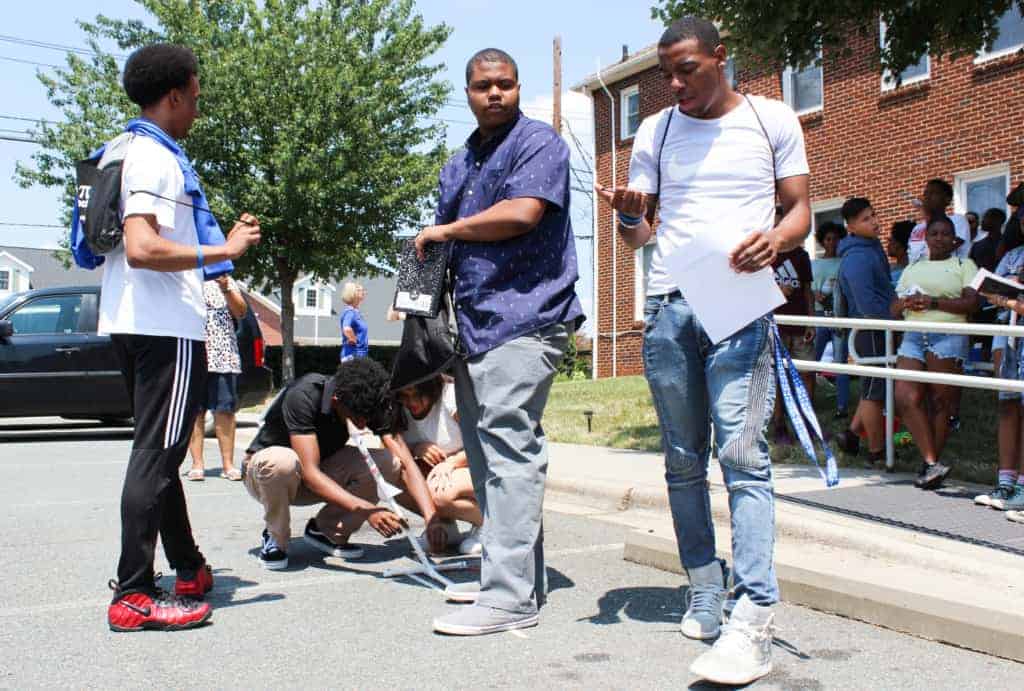

“I remember a lot of times when I knew the answers to questions … or I would have great ideas,” said Boko, who completed medical school at the University of Iowa. “But I wouldn’t really say anything, and then somebody else would say what I was thinking.”
The experience taught her to get out of her introverted comfort zone and to speak up.
“I would say having the confidence to get out of my comfort zone has really helped me to grow and it has helped other people to see what I know and what I can do,” she said.
Aloysius Jones, fellow STEM navigator for NC STEM Alliance at Guilford Tech, shared similar experiences to Boko as a minority in the STEM field.
“I started as an engineering major, and I faced some of the exact same challenges that many of our students face being a minority student in kind of this big world of STEM, and you’re kind of there on your own,” said Jones, who joined Boko on the final day of FTCC camp. “I struggled, so I’m very familiar with what students are going through.”
Jones emphasized the importance of underrepresented minority students seeing themselves in STEM fields at all levels: from their peers, to family, to mentors, to teachers and instructors in the classrooms, to people in the workforce.
“Many times, these students aren’t going to see that,” he said.
“We wanted to help strengthen that pathway,” said Jones of the NC STEM Alliance. “The grant was written to help strengthen that pathway.”
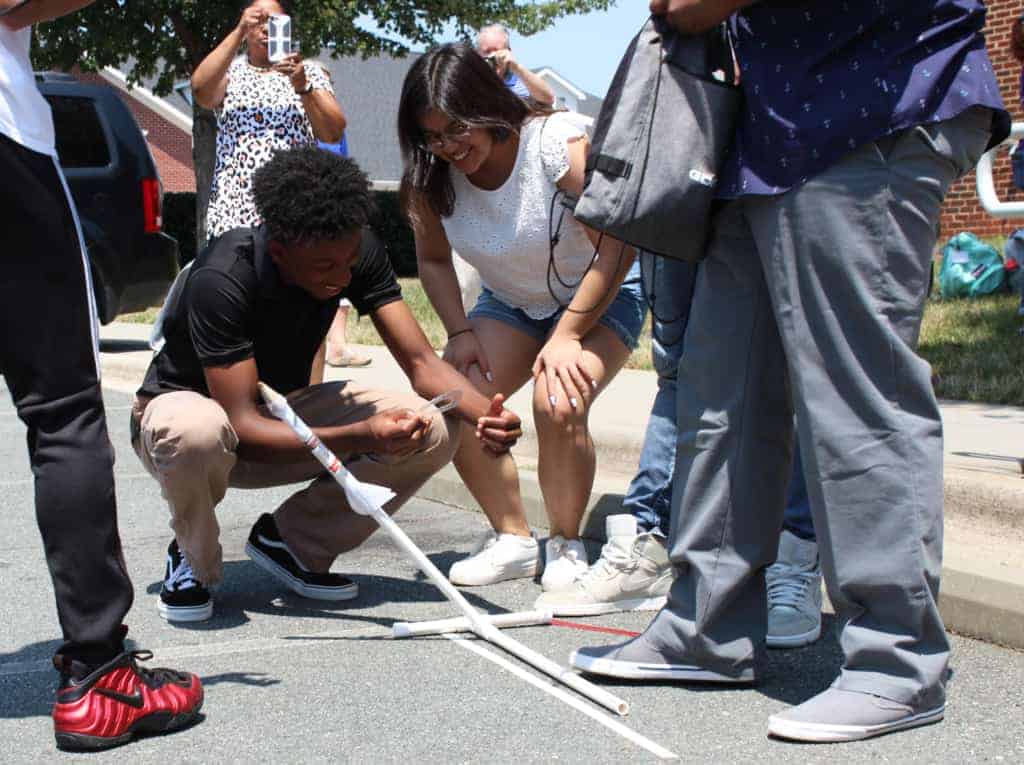

On Friday afternoon, students completed their last activity in an outdoor parking lot — their final rocket launch, with Jones and Boko standing watch. After multiple trials during the week, students had come closer and closer to landing their air-pressure fueled rockets in their designated target: a hula hoop.
One group, through trial and error, had measured their rocket to launch at 60 degrees. Graham leaped onto an empty soda bottle, propelling the team’s rocket into the air and into a perfect landing.
This time, when his face lit up, he danced.
